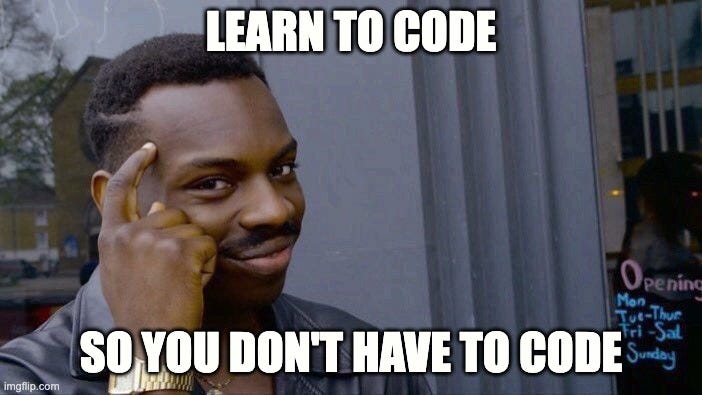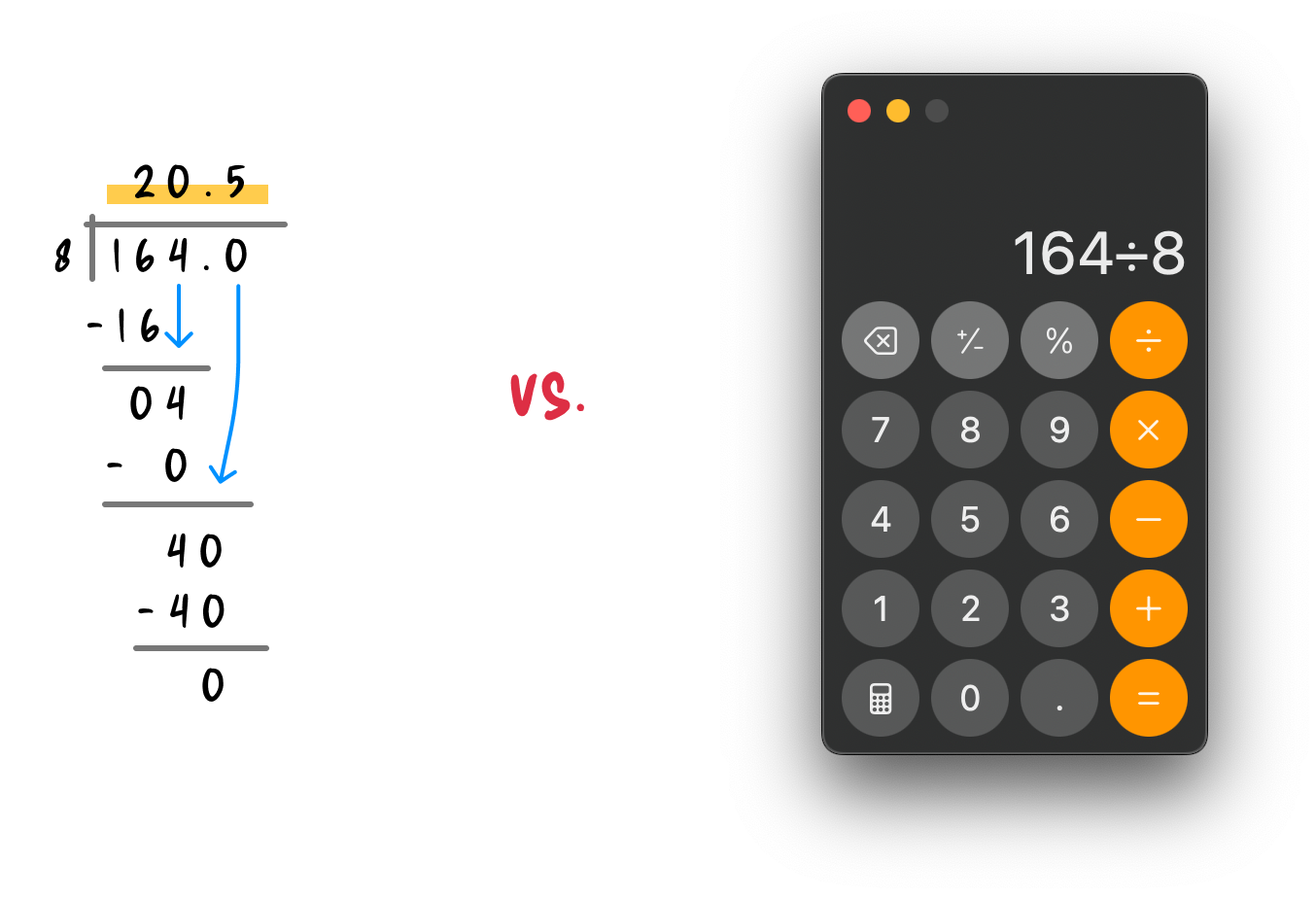Learn to code so...you never have to code! 🧑💻
In the past, we learned to code so that we can code more effectively. In the future, we'll be learning to code so that we'll never have to code at all.
Hi everybody - building on my earlier post on vibe coding, a discomforting realization is this:
In the past, we learned to code so that we can code more effectively. In the future, we'll be learning to code so that we'll never have to code at all.
If I had to simplify this into meme format (which is all the rage these days, so I hear!), it would be this:
This sounds counterintuitive, but hear me out. Thanks to increasingly powerful AI assistants, coding has joined a list of activities that we’ll never have to actively get our hands dirty with. In terms of what is important or not important in this world is this:
✅ Important: the idea of what we want to build or modify
❌ Not important: how the idea gets translated into reality
✅ Important: ensuring that our AI assistant’s output works and meets our quality bar
If you and I didn’t know how to write a single line of code, we would be quite successful in iterating through Steps #1 and #2. If all we are building are sample apps or fun little demos, we don’t have to go further.
When it comes to taking a vibe coding app and deploying it for production, Step #3 becomes critical. We need to not only test the functionality of the app, we will need to review the code to ensure that there are no glaring red flags. For example, are we authenticating with external services in a safe way? Are we ensuring passwords and secrets aren’t being exposed to the client? Are we adding the appropriate safeguards to avoid someone from exhausting any API quotas by deliberately misusing our app? Are we following performance best practices?
This is why successful vibe coding requires us to be very familiar with the technical details of our code and architecture. We need to be able to spot mistakes. We need to be able to unblock our AI assistant if it gets stuck, and this unblocking will require being specific about technical details. How can we be good at this? We become good at this by having learned how to build software in the first place. We need to have learned how to code something at a high quality. We need to understand what good implementations and bad implementations look like. All of this can only come from experience. Once you have learned the ins and outs of how to build software, you can better guide the AI assistant. All of this guiding can be done without actually having to write code.
For example, let’s say I have to divide 8 into 164. Because I know what division looks like, I can confidently use a calculator instead of doing the calculation manually:
The calculator didn’t replace my need to know math. It just sped up my process of going from problem to solution because I know what to tell the calculator to do. I know this from having spent a lot of time when I was younger doing long division by hand and knowing the details of what is going on. Coding is similar. The more you and I know how to code, the more you and I can effectively guide our AI assistant to write all of the code for us. Ironic, right? 😅
Till Next Time
At the end of the day, vibe coding doesn’t mean throwing away everything we’ve learned—it means putting that knowledge to work in a new way. The more we understand how software is built, the better we can guide AI to do the heavy lifting for us. Think of it as moving from crafting every brick by hand to being the architect who knows exactly how the house should stand. The skills we’ve built don’t go away. Far from it. Instead, our skills just evolve into sharper tools for a different kind of creation.
If you have any thoughts or comments about this, feel free to contact me by posting on Twitter / X, the forums.
Cheers,
Kirupa 😀




